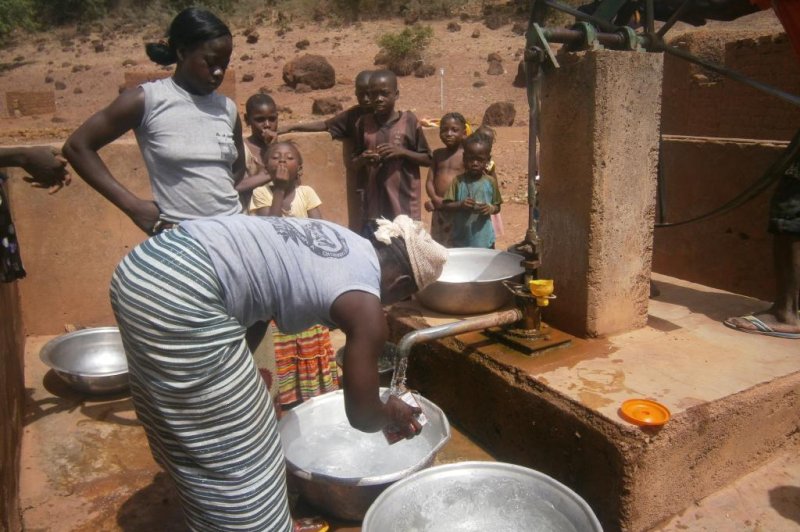A woman and her children collect water from a well inside a rural village in Burkina Faso, West Africa. Photo by Kathryn Grace/University of Utah
SALT LAKE CITY, Sept. 29 (UPI) -- Stronger storms, higher tides, longer droughts and lower birth weights -- global warming's rap sheet continues to get longer and longer.
According to a new study, expecting mothers in Africa who are exposed to higher temperatures and less precipitation tend to birth infants weighing less.
Researchers from the University of Utah analyzed the birth weights of 70,000 infants born in 19 African countries between 1986 and 2010. They cross-referenced birth weights with weather data from the estimated time of conception through birth.
The evidence showed that the greater the number of the days with a temperature over 100 degrees Fahrenheit, the more likely the baby was to be born with a low birth weight -- defined by the World Health Organization as less than 2,500 grams. Additionally, analysis showed that increases in precipitation resulted in higher, healthier birth weights.
Previous climate models suggest much of sub-Saharan Africa will feature hotter, drier weather, should climate change continue unfettered.
"Our findings demonstrate that in the very early stages of intra-uterine development, climate change has the potential to significantly impact birth outcomes," lead study author Kathryn Grace, a geography professor at Utah, said in a press release. "While the severity of that impact depends on where the pregnant woman lives, in this case the developing world, we can see the potential for similar outcomes everywhere."
Grace says efforts to provide resources to pregnant women in Africa's developing nations will be all for not if direct action isn't taken to slow climate change and protect the world's most vulnerable populations from its effects.
"At the end of the day, the services we invest in to support these developing countries won't reap the same level of benefits as long as climate change continues," Grace said. "Services such as education, clean water efforts and nutrition support won't be as effective. We need to work faster and differently to combat the evident stresses caused by climate change."
Earlier this week, new evidence linked lower birth weight to diminished levels of social trust -- the glue that psychologists and sociologists say holds society together. Taken together, the two studies suggest global warming could bring about a less trusting world.















